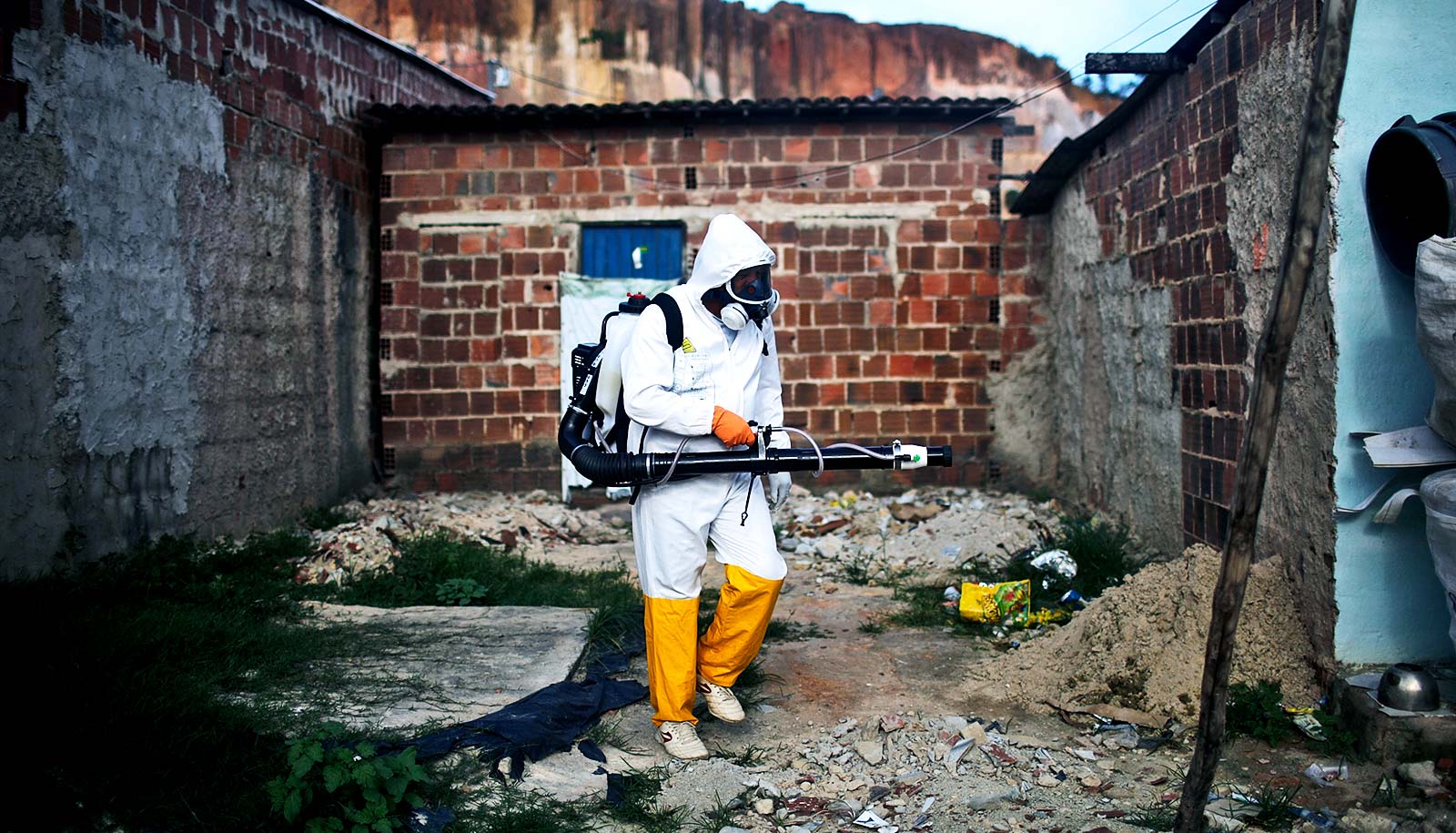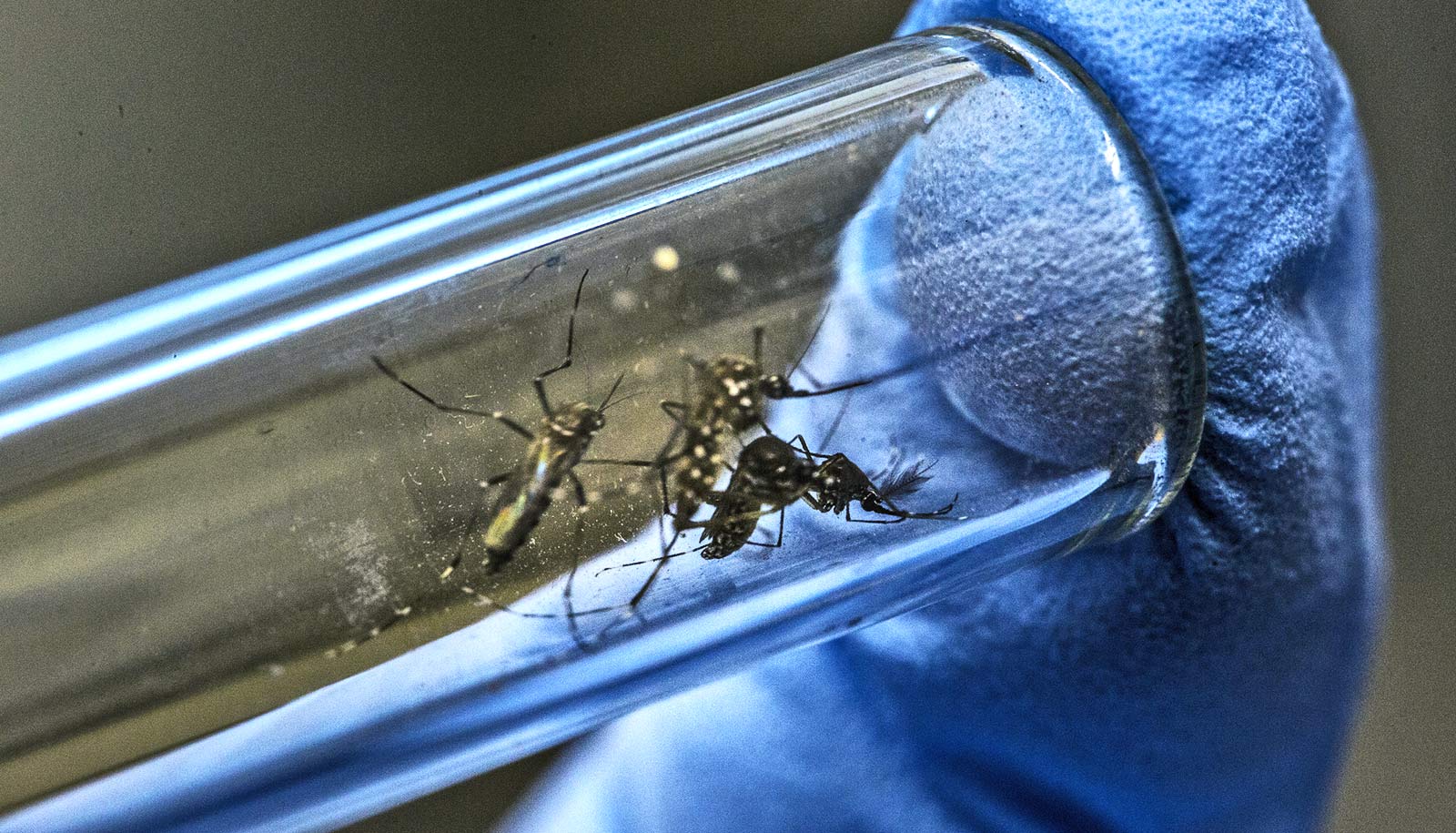A surprising new interaction between the dengue and Zika viruses sheds light on the significant fetal brain abnormalities linked to Zika.
Researchers discovered that fetal mouse brain damage was much worse if the mothers infected with Zika also had dengue antibodies. Further, they discovered that a receptor on placental cells recognizes an immune complex that forms when dengue antibodies attach to the Zika virus, allowing the virus to travel across the placenta into fetal cells.
Scientists wanted to investigate why some, but not all, Zika virus infections during pregnancy lead to fetal brain abnormalities. They also wanted to know if the severity of fetal infection has anything to do with previous infection of the mother with dengue virus, which closely relates to Zika and often circulates in the same regions of the world.
“Our research indicates that previous immunity of the mother to dengue could be a risk factor for severe outcomes in infants born to mothers infected with Zika virus during pregnancy,” says Ashley St. John, assistant professor from the Duke-NUS emerging infectious diseases (EID) program and corresponding author of the paper, which appears in Science Advances.
“This is highly significant, since current Zika virus epidemic regions overlap to large extent with those of dengue viruses, and this work informs our understanding of mechanisms that could influence the severity of infection with Zika virus.”
The study, which used an animal model conducted according to the National Advisory Committee for Laboratory Animal Research guidelines, analyzed the physical differences between the fetuses of mothers with no exposure to dengue, or had dengue and had developed antibodies against the virus.
The findings show that Zika virus infection in mothers with antibodies against dengue resulted in fetuses with smaller body mass and head circumferences, and more significant damage to the brain tissue. Further, when researchers blocked a receptor called neonatal Fc receptor (FcRN), it reduced Zika virus transmission from mother to fetus, resulting in a larger head circumference and less brain damage.
The team also showed that antibodies to dengue can promote transmission of Zika virus across human placental cells. Scientists need to do more research to determine if previous dengue virus infection has the same effect on human babies born to women infected with Zika during pregnancy.
The novel mechanism that leads to Zika virus transfer from mother to fetus could also play a role in other viral infections transmitted from mother to fetus, such as HIV and cytomegalovirus, says St. John.
“This study sheds light on a question that has, until now, eluded doctors and researchers—the mechanism behind why some babies of mothers exposed to Zika are born with brain abnormalities—and is a critical step in finding new options for prevention and treatment,” says professor Patrick Casey, senior vice dean of research at Duke-NUS Medical School.
The team plans to use the findings to develop better treatment options for Zika virus infection during pregnancy.
Source: Duke-NUS



